Intellectual Development
Our students will learn key academic skills - like reading, writing and math - to encompass the knowledge and processes associated with intellectual development. As learners and meaning-makers, students take subject-specific concepts and content and transform them into a new understanding.
Goals
- Improve student success in literacy.
- Improve student success in numeracy.
Check out our School Plan for the 2024-2025 school year.
Check out our 2023-2024 school year Celebrations of Learning
Check out our 2022-2023 school year Celebration of Learning
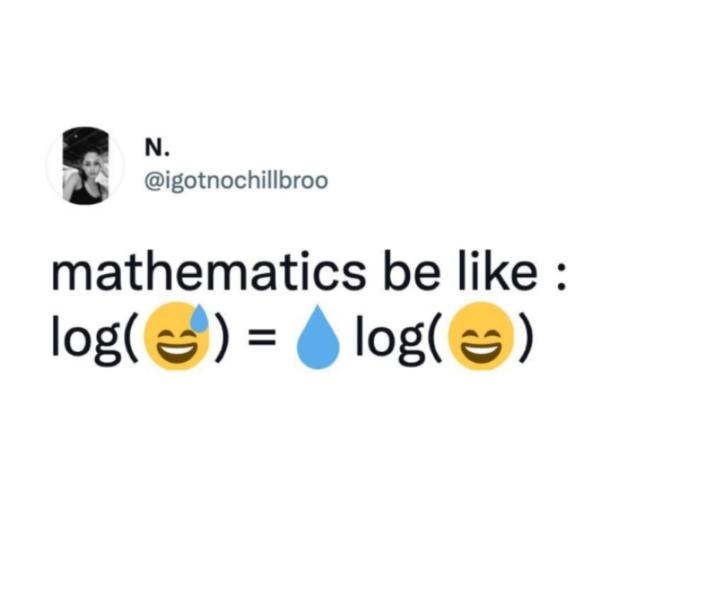
The Language of Mathematics
Math is often referred to as a universal language given its ability to have the same meaning all over the world. But with terms like hypotenuse, radicand and asymptote being readily thrown around in a math classroom, it's easy to appreciate why the language of math is foreign to so many people. This past week our grade nines were being introduced to the vocabulary associated with polynomials. Foldables were used in many classrooms as a tool for easily accessing and referencing this new terminology. To understand the implications of degree, coefficients variables and constants opens doors to applications in civil engineering, medical research, and economics, to name a few.
Pre-Calculus 12 students have been speaking the language of logarithms. Being fluent in this language allows the speaker to understand and interpret such applications as Richter Scale, the radioactive half-life of isotopes and the epidemiology of viruses.
Students are often reminded that the best way to become adept at a new language is immersion, practice and learning from a fluent speaker.
Of course, what's the best part of being fluent in any language? Being able to understand the jokes.
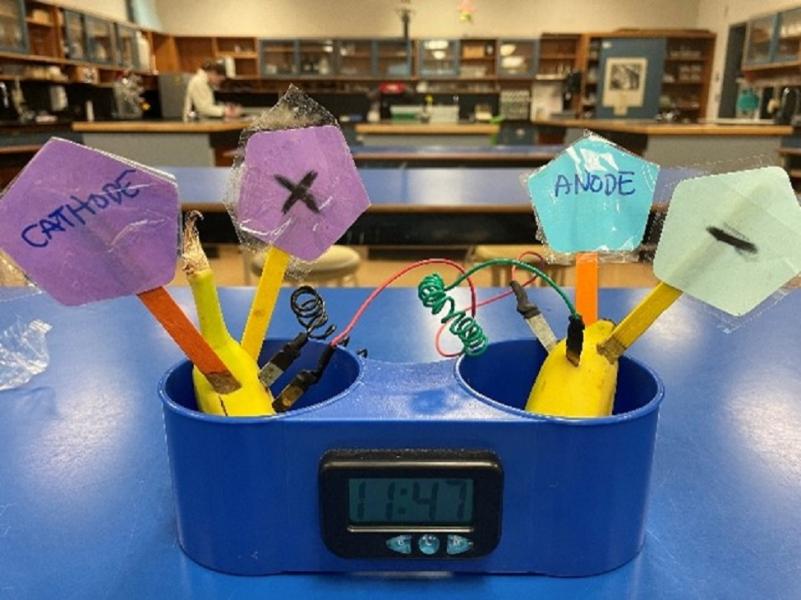
Applications of Electrochemistry
Students in Chemistry 12 just finished their unit on Electrochemistry. The big idea of this unit is that oxidation and reduction reactions are complementary processes that involve the gain or loss of electrons. Oxidation (loss of electrons) is not able to happen without reduction (gain of electrons). To put it simply, you need something to lose electrons so another can gain. With this big idea in mind, students were able to apply their learning to various applications:
Building and analyzing their own battery (Electrochemical Cells)
- Using a battery to produce chemicals like gases and metals (Electrolytic Cells)
- Gold Electroplating
- Making a Breathalyzer
- Determining the % concentration of commercial grade hydrogen peroxide by titration
- Preventing Corrosion by Cathodic Protection
The students were able to make connections and see the practical applications of chemistry in their real life.
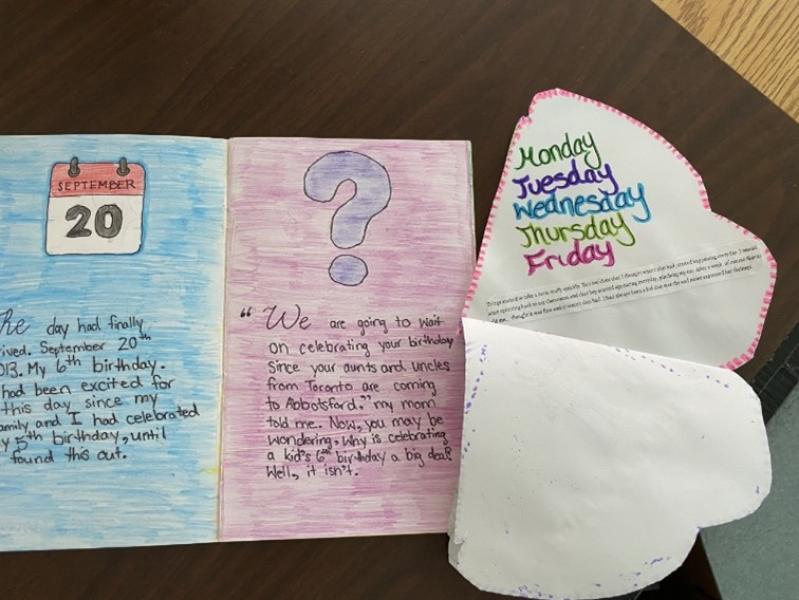
Personal Narrative Picture Books
As part of our writing unit, grade 9 students got in touch with their creative side as they created a Personal Narrative in the form of a picture book! Ms. Oppelt designed the assignment because she had a feeling that students were itching for something more creative than a Personal Narrative Essay, and it also would mean less essays to mark, so sign her up! The assignment had students work on their descriptive writing, how to format dialogue in a story, ability to sequence events, as well as show their understanding of Freytag’s pyramid. Students were engaged and had fun reflecting on their past, choosing a memory, and then bringing it back to life in their picture books. Ms. Oppelt enjoyed reading through the finished products as it allowed her to get to know her students even more.
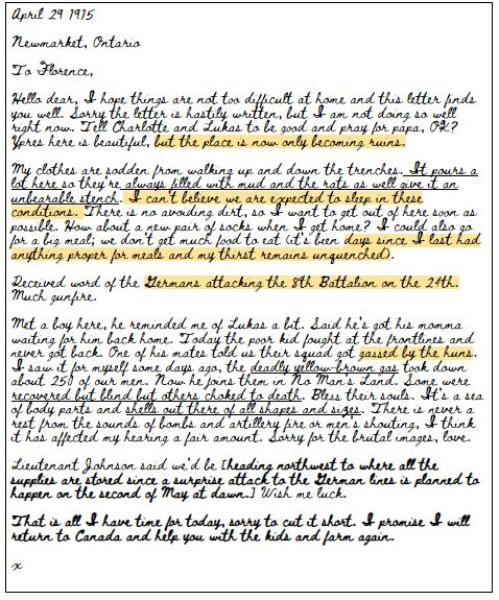
Letters Home WW1
In Social Studies 10 this semester, students made the First World War, 1914-18, come alive through a dedicated mix of primary source research and historical perspective taking as we questioned how Canadian soldiers experienced the war. Students spent days studying Canada's experience of the war and then combed through a massive Canadian online database of actual soldiers' letters that were sent during the war. The Canadian Letters and Images Project holds an amazing collection of primary source evidence and led students on a journey of historical discovery as they incorporated evidence of what they had researched into a new, unique letter, creatively written but grounded in historical fact, from the perspective of a Canadian soldier writing home to loved ones from the front lines in France. Students wrote moving, historically accurate accounts of the often-numbing brutality but also mundane banality of the war. They wrote in a way that conveyed a sincere empathy to the experiences of veterans and the sacrifices they made for Canada. This Remembrance Day, these students will have a brand new, deep, and deeply historical, understanding of the unique, often harrowing challenges that our soldiers faced as they fought for Canada in one of the most brutal wars in human history.
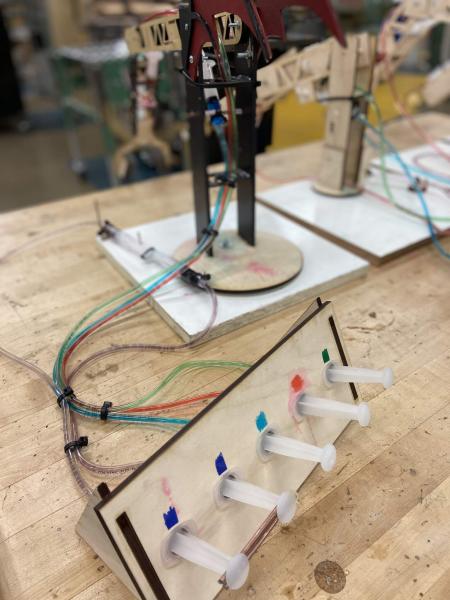
Robotics 10- Syringe Robot Arm Challenge – Tee it Up!
During Robotics class students are introduced to fluid power (hydraulics and pneumatics), articulated robot arms (torque motion) and end effectors while developing their design and manufacturing skills and balancing demanding teamwork and cooperation skills to accomplish the completed task. Students worked in teams to design and construct an arm that would allow them to move a golf ball from golf tee to golf tee. Lesson outcomes included:
- • Describe the operation of a fluid power system, including:
- How pressure and piston area affect force
- The relationship between piston area, stroke length and force
- Why pistons are good at pushing but poor at pulling
- • Use the tools and equipment provided to create a hydraulic robot arm
- • Use the robot arm they create to accomplish a predefined task
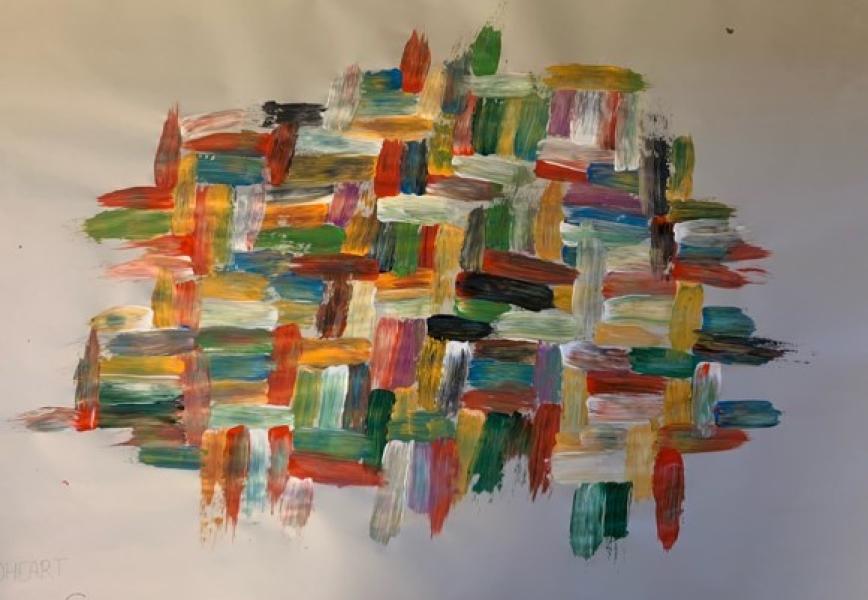
UBC Art and Music Collaboration
Ms. White and WJM Extended Day Art students are collaborating with Robert Taylor, Director of Bands at UBC Music. So far, they have met Dr. Robert Taylor and two master’s students via virtual meet where they talked about their plan and what excites them most about this collaboration. Students read descriptions of the meaning and story behind each piece of music, chose the one they connected with, and began creating artwork based on each piece. This is a continuation of our music response art making that students have practiced in class previously.
The UBC Symphonic Wind Ensemble concert will perform Garden of Dreams next Friday Nov. 19th (in person and virtually) and the artwork created by W.J. Mouat students will be displayed at timed intervals within the show. Additionally, their artwork will be featured in the advertisements, the program and as part of the pre-show display.
The image above is a visual representation of the music.
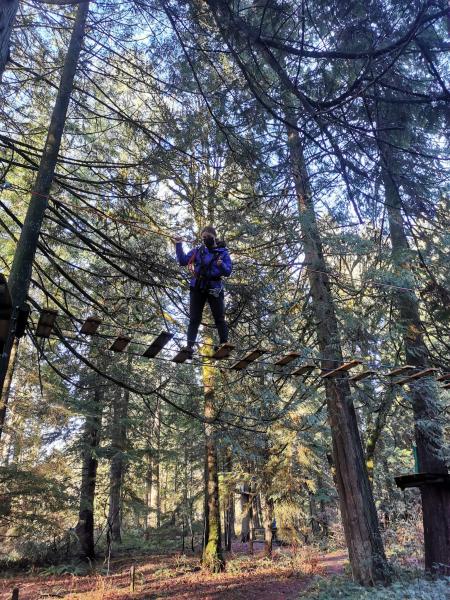
Extreme Outdoor Education
It’s a bird, it’s a plane, no it’s an extreme outdoor education student flying through the trees at Wildplay! Students spent the day overcoming their fears as they traversed three progressively more challenging high ropes courses, which became higher and more difficult with each level. The most adventurous ones in the group even decided to tackle the extreme course, completing challenges over 60 feet above the ground. Beautiful December sunshine greeted the group of students who learnt how to properly fit a safety harness, how to navigate physical challenges while attached to a safety line, and how to push themselves out of their comfort zone to be able to complete the course. All in all, lots of smiling faces and pride in terms of accomplishments were seen at the end of the day.
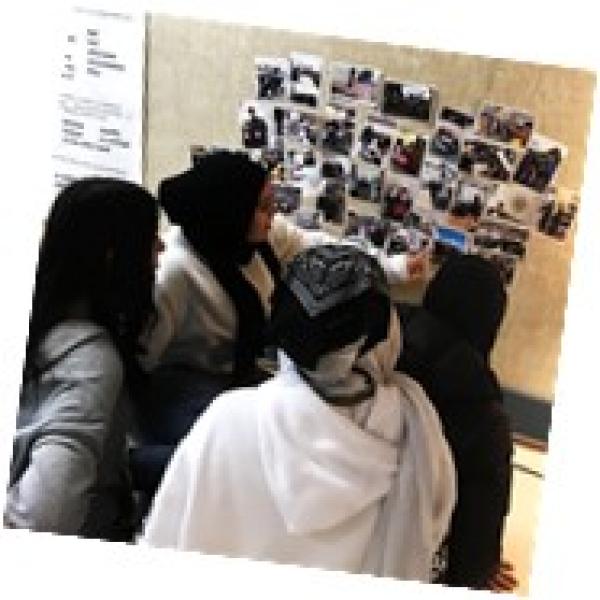
English Language Learners
Room 315 is the hub for English Language Learners and their friends. It is a place where everyone is welcome and where diversity is celebrated. Inside this room, community is the number one priority. Over the last six years, many moments have been captured in pictures. Moments from field trips, learning moments, celebrations, and moments of friendship and connection. This past week, we printed some pictures and hung them in the room to remember the moments, faces, and stories. We hung them to proudly display our ELL family. 💛 What happened next created another moment - all the students who have come by over the week, gathering around the pictures laughing and remembering. We tried to make sure that every member of our community was included and were reminded, once again, about the importance of relationships and helping students build positive connections. We look forward to growing this wall of moments and memories!
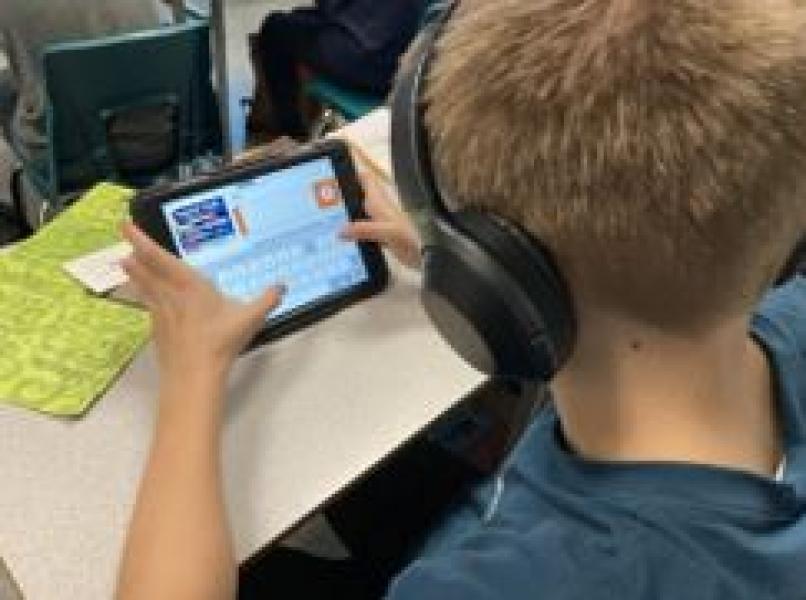
Differentiation in French Immersion via Technology
Although students may be in the same grade, French immersion students are seldom at the same level. Therefore, a differentiated approach is essential for them to continue building on their skills, and confidence. Using the application ‘Les dictées d’Archibald’, students can choose their own profile, work at their own pace, and at their own level, to increase their vocabulary and refine their listening and writing skills. “I think it helps a lot with speaking and listening and then being able to write words out. It also helps a lot with spelling because of the ability to look at your mistakes and fix them and then double check that you did it correctly.” Atticus Brummitt.